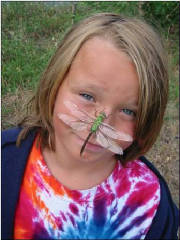|
Place-Based
Life Skills - Steve Archibald; Head Teacher at TCCS
The original Journeys curriculum
was developed in 1996 at the Teton Science School. As that effort was taking shape, it became clear that there were differences
in how people who were connected to their place spent their time. Interviews were conducted with farmers, artists, parents,
politicians, students, ranchers, doctors, truck drivers and others. The list of qualities that emerged from those interviews
became the heart and soul of the Journeys sense-of-place educational philosophy.
Personal
Sense of Place - Reflection:
slowing down; thinking
- Solo Time: time alone;
unpressured; simply "being"
- Sauntering:
reflective walking
- Sensory Awareness: sharpening
all of the senses through use
Scientific Sense of Place - Phenological: ecological; long-term; meaningful; driven by observation &
data
- Naturalist's Tools: binoculars;
maps; hand lenses; cameras; field guides; nets, thermometers; etc
- Field Time: spending time in nature discovering & exploring the local environment
Communication In and About Place - Sharing: poetry; painting; music; writing, drawing, math, etc.
- Journaling: guided; unguided; written; drawn; scientific; observational;
personal
- Stories: past (historical);
present, personal; shared
Living in Place - Working/Playing: Everyday tasks and simple fun in place help to shape us
as individuals
- Reading/Studying: Learning
about our place is an important life-long journey- it iincludes the study of natural phenomena, including us as humans
- Service: We take care of the world in which we are a part
- Joy of Living: Celebrate how great it is to be alive!

|

